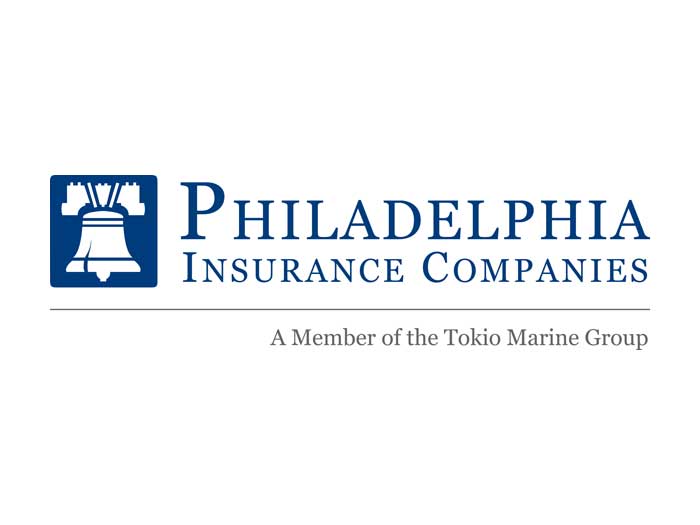Sophisticated Private Equity Investors Now Look to Insurance to Unlock Capital and Value

It’s been a hot 19 months for the mergers and acquisitions insurance market. After plummeting 34% between Q1 and Q2 of 2020, deals are once again up, doubling the number of deals completed in Q4. S&P Global Market Intelligence data showed the upward trend has been driven in great part by private equity firms.
For Liberty Global Transaction Solutions (GTS) president, Rowan Bamford, “more of those deals are now looking to insurance because of the competitive landscape.”
“The sellers are calling the shots, saying, ‘We’re not taking any liability going forward.’ ”
We can thank the perfect storm created by COVID for that. When the world gradually began reopening after having shutdown abruptly due to the rapid spread of the coronavirus, private equity firms were in a mad dash to invest the “dry powder” that had been raised before the pandemic.
Unused cash sitting idly in the market is not good for firms that are judged on how quickly they can make a return for their clients. So began the increase in competition at auction.
“You see every business now that’s worth its salt is party to a competitive auction process,” Bamford said.
“There are three, four, five bidders bidding on that business, [whereas] if you go back to a gentler point in the cycle 10 years ago, you might only have one suitor who’s going more slowly, taking his time, really checking out the business.”
With more competition came tighter timescales and less time for due diligence, and sellers were in a better position to dictate the terms of the sales.
Bamford saw sellers reluctant to give any warranty protection. “They don’t want to have any recourse against them,” he found.
The inability on the part of buyers to complete a thorough diligence process before closing a deal – due to pandemic-induced staffing changes and lack of physical access to conduct inspections, for starters – combined with the liability protection offered by insurance to cover any gaps, prompted firms to begin viewing insurance as the risk mitigation tool that it is.
Demand for M&A – as well as D&O, reps and warranties and similar products – began to heat up. “The buyer has to get some protection from somewhere,” Bamford said. “The insurance policy comes in and we provide it.”
And given the uncertainties facing the global economy, insurance will likely be a mainstay in private risk management strategies for the foreseeable future. Liberty Mutual now writes over a billion dollars in private equity backed business.
Challenges to Underwriting
Not since the end of World War II has the world economy had to restart to the extent that we’re seeing globally. The unique interconnection of macroeconomic factors triggered by the pandemic has made it even more important for private equity firms to partner with underwriting partners who can think on their feet.
Labor shortages, supply chain interruptions, and fuel costs are just some of the major issues facing every corner of the global economy. The interplay of all these factors has been what’s made it so challenging for firms rapidly expanding their portfolios to cover their exposures.
Before the pandemic, when Bamford and team at Liberty GTS would profile the risks that they chose to underwrite, the questions would have been simply, “Is it a good sector?” and “Is the sector viable in the long term?”
Now, the questions Bamford and team consider are more complex because they no longer have the benefit of standard industry expectations and historical trajectories to rely upon.
“We’ll have to think really on our feet, constantly changing our position as underwriters to work out what is the next issue of our time, how does that affect other parts of the chain that it’s connected to?” Bamford said.
“How does that affect the policy that we’ve underwritten yesterday? How does it affect the policy we’re going to write tomorrow?”
Private Equity’s Broader View of Risk
As long-haul recovery from COVID’s effects on the economy continues and firms begin to fully process the lessons learned from the buying frenzy, their risk managers will be looking to the carriers that they have built relationships to assist them in charting the path forward.
Amy Gross, global practice leader, private equity, Liberty Mutual Insurance has seen firms looking to aggregating their insurance spending with carrier partners who can have the foresight to be responsive to new risks as they emerge.
Creativity from a carrier will be important in forming partnerships, not just premium costs alone.
“Insurance is not just a purchase and price, but also [having] the right coverage in place and making sure the claims and some of the risk controls [are] handled appropriately,” according to Gross.
“It’s also the creativity of being able to box in future exposures,” so that when the time comes to sell, firms can “make a better return when [they] exit,” Gross said.
Although bigger deals being made has meant bigger losses, and overall premiums are up, considering the cost of insurance compared to the cost of M&A advising and litigation, insurance still comes in lower, and thereby a worthwhile expense for firms looking to manage a broad range of exposures.
Gross has seen that, “if there is a claim and it’s a bad claim, at the end of the day when they exit a business, it could have an impact on the value of that business because the insurance costs have gone up or there’s outstanding liability.”
“So being a partner that can work with them holistically on preventing claims and managing them when they happen, globally, is really important.”
A Broader View of Insurance
Attitudes and perspectives around the role of insurance as a key risk mitigation tool have changed. Firms also have a greater understanding of the way policies can be used to reinvest funds by unlocking capital and value.
Private equity risk managers that would have been reluctant to leverage insurance in the past, are more aware of what their policies cover and how to bring a claim to market more readily.
The insurance market is also at a place now to handle larger claims.
“Bigger deals used to not get insured in the marketplace because there wasn’t enough market capacity to deal with them,” Bamford said. “So [firms] would tend to go and find another way of sorting out liability issues rather than using insurance.”
“Now,” he has seen “as the insurance market’s matured and grown, those bigger deals can get placed using towers of insurers to cover the risk.”
Relationships between carriers and private equity firms will matter in the face of high demand. Insurance carriers like all other industries are seeing a “human capacity shortage,” and there are only so many underwriters available to write coverage – especially given the depth of industry knowledge required in today’s market.
“Where you have a partnership, your deal can go to the top of the pile,” Gross said.
Caution Moving Forward
Even if the pendulum swings toward recession, and fewer deals are made, cautionary private equity buyers will be looking to insurance for the risk mitigation it provides. Especially after undergoing the learning process that every firm is experiencing.
“As more firms have risk managers overseeing premium and insurance programs,” Gross said, “as they see losses or report claims and they’re centralized, there is learning.”
As firms learn what was missed in the diligence process and address their processes moving forward, the lessons learned will carry across their portfolios and lines of business.
“You may have companies in your portfolio that are very different, where one’s manufacturing and one’s healthcare,” though these are different companies, for Gross, “if you see gaps that cause claims –whether it’s a cyber claim, a D&O claim, a workers’ comp claim – it’s something that can be learned from,” and used to improve a firm’s portfolio companies to prevent those losses in the future.
“That’s a game changer in bringing down that overall risk profile,” Gross said.
Bamford expects that even in recessionary times, and firms are cautious and uncertain of pricing, insurance will still have a role to play in private equity.
“There might be less deals around, but if we continue with the upward trend of penetration on the deal,” Bamford said, “the market will be strong.” &












